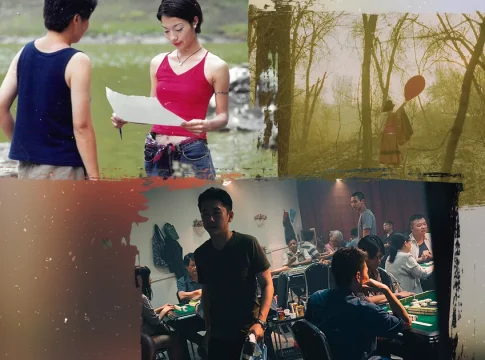Temporal Sensibilities: A Deep Dive into Queer Nostalgia at the Queer East Film Festival
If you thought cinematic nostalgia was just a way for your favorite directors to cash in on past glories, think again! The Queer East Film Festival recently showcased a trove of films that did more than just take us back—they made us feel the weight of history through the lens of queer experiences. This year, two Emerging Critics, Yuki Yoshikawa and Pear Nuallak, are giving us the inside scoop on the powerful narratives they encountered.
A Journey Back in Time
Yuki kicked things off by reminiscing about her love for vintage Taiwanese cinema, particularly the double feature of Where Is My Love? and Incidental Journey. These films, crafted between the ’80s and early 2000s, serve as time capsules, allowing viewers to taste the bittersweet nostalgia of bygone queer lives.
“Even if the film seems old—scratched footage and all—it carries an authenticity that modern films often lack,” Yuki explains. The rough edges only add to the charm, echoing the raw emotions experienced by queer characters navigating life in a less accepting society.
Key Highlights:
- Nostalgia’s Pull: Yuki finds herself captivated by eras she never lived through, drawn to the evocative landscapes and poignant relationships depicted onscreen.
- Queer Depictions: Both featured films dive into the complexities of coming out and love in less tolerant times, reminding us how far we’ve come—and how far we still have to go.
Revisiting Queer Time
In a fascinating reply, Pear introduced the concept of “queer time.” Imagine time like a winding road rather than a straight path; it’s a space where societal expectations don’t dictate your journey. This was particularly evident in a performance piece called An Ass-Shaped Butterfly, which cleverly juxtaposed historical narratives with a modern eye. Misha Zakharov’s playful exploration of queer identity through Soviet culture was both ironic and enlightening.
Pear’s Observations:
- Poignant Moments: In Silent Sparks, we follow Pua, a young gay gangster confronting life after imprisonment. The slow pace and rhythmic visuals offer a gritty yet touching portrayal of confinement, both physically and emotionally.
- Love and Longing: The film cleverly intertwines Pua’s illicit relationship with high stakes and heartfelt desire, questioning whether he can truly escape the chains of both his past and societal expectations.
Queer Cinema’s Power
Both critics powerfully articulate how these films transcend mere storytelling; they become portals to understanding queer histories, challenges, and joys. Watching these stories unfold feels like tripping through a time warp, where moments of joy mingle with deep reflections on loss and nostalgia.
Whether laughing, crying, or questioning societal norms, viewers walked away from the festival with more than just memories: they were equipped with a renewed sense of identity and community solidarity.
Final Thoughts
So, what exactly did we learn at the Queer East Film Festival? That through film, we can explore complex narratives around queerness, relive emotional highs and lows, and affirm our existence across spectrums of time. As Yuki beautifully put it, “queer fantasies created by film blur the lines between the past and present, disrupting the flow of time and constructing a romantic past for queer people.” Isn’t that what art is all about?
For pop culture lovers looking to dive into queer cinema, this year’s festival was not just a screening—it was a vibrant reminder that our stories, regardless of when they were set, continue to resonate powerfully today.

Covers viral stories, pop culture, and breaking celebrity news.
Bio: Jamie has a sharp eye for what’s buzzing online, tracking social media trends and entertainment headlines around the clock.

